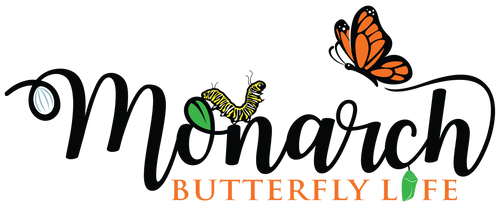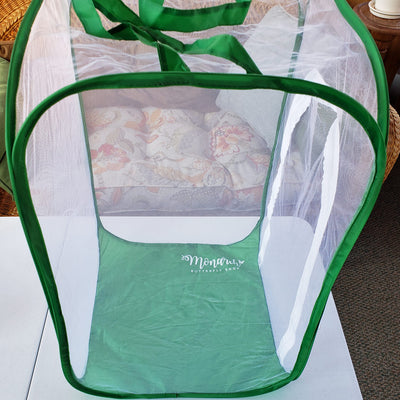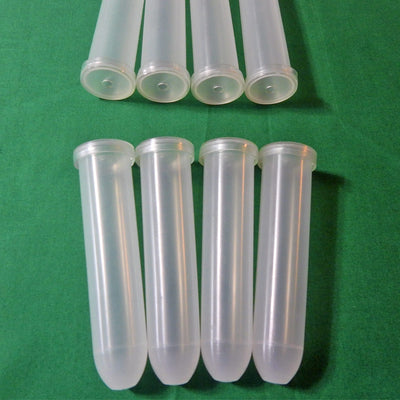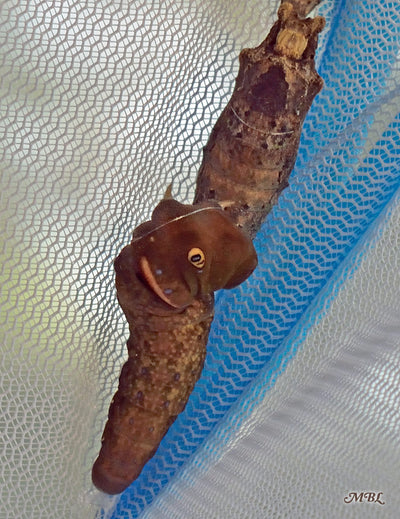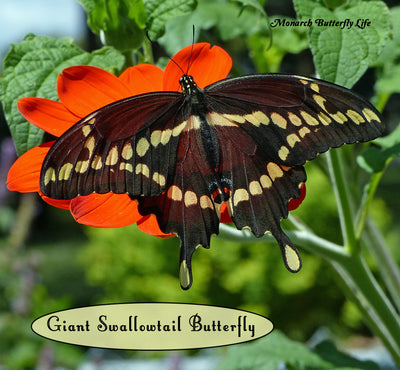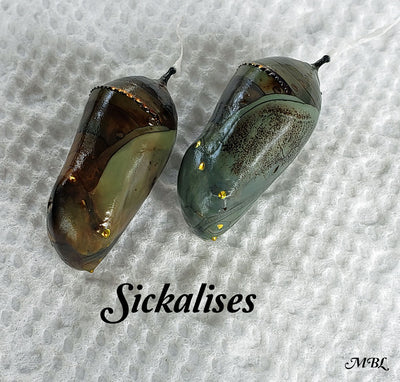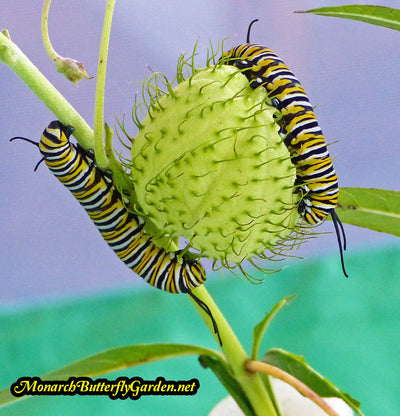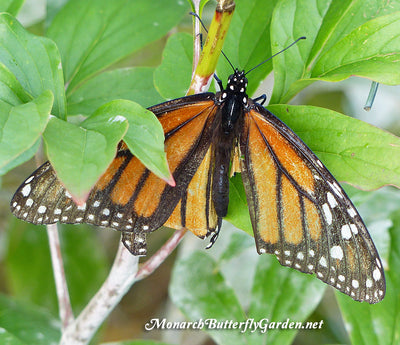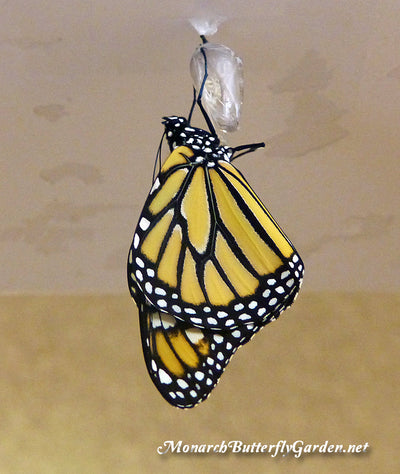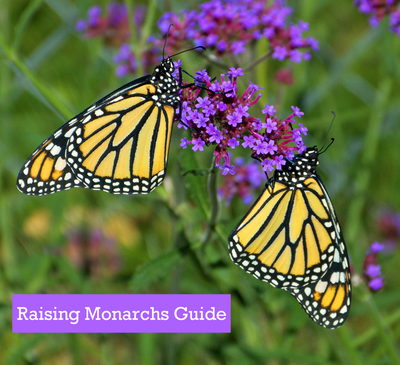Raising Butterflies Blog
An Easier Way to Clean Up Messy Monarch Caterpillar Cages? 🐛💩💩💩

Caterpillar Cage Cleaning Tips
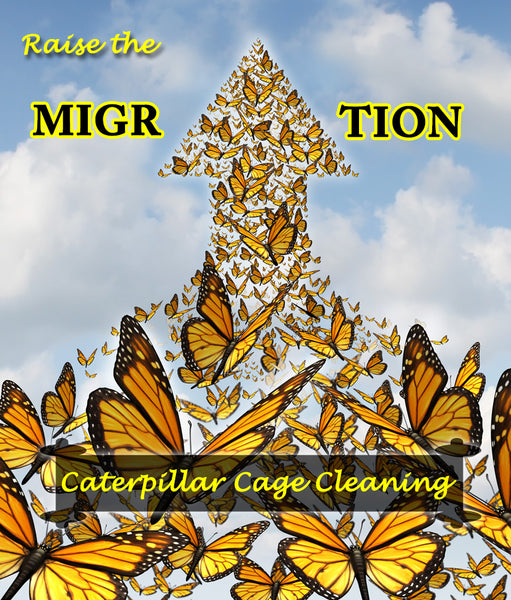
Cleaning caterpillar cages isn’t the reason most of us started raising monarch butterflies, but it’s really not so bad compared to cleaning up after our four-legged 🐶🐱 (and feathered 🐔) friends.
First off, the frass (poop) doesn’t smell too foul since your caterpillars are strict milkwetarians. Second, with a simple raising accessory, you can avoid direct-contact with frass, while saving precious time.
If you have leaves on the cage floor, I suggest cage cleaning twice a day (morning and evening) but you only need to clean once a day if you’re raising on elevated cuttings (recommended) or potted plants. The goal is to avoid having your monarch caterpillars crawling around in (potentially) bacteria-filled waste.
If you let frass pile up in your cage, don’t be surprised if your monarchs succumb to diseases. We have not suffered a monarch disease outbreak in 30 years. I believe, without a doubt, that keeping the caterpillar habitat clean has a lot to do with this unlikely streak of good fortune.
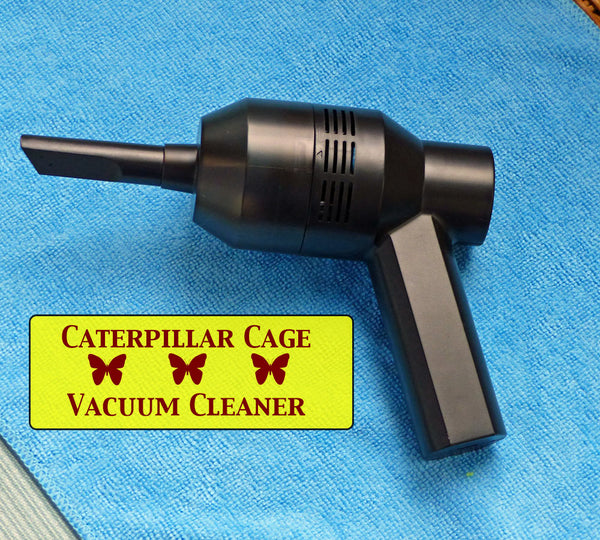
Cleaning Mesh Caterpillar Cages
- Wash your hands with water and thoroughly dry before handling monarchs or raising supplies
- Remove any caterpillars from the cage floor by picking them up with a milkweed leaf or a small soft-bristle paint brush
- Blow off or use fingers to push down leaves so frass/poop that’s sitting on them falls to the cage floor
- Place cuttings containers and leaves (with monarch caterpillars) on boot trays while cleaning
- Clean any size cage with a keyboard vacuum cleaner to clean caterpillar frass 💩💩
- Remove 14" poo poo platter on the cage floor to empty frass from your baby cube or Tall baby (no platter? just use keyboard vacuum)
- Remove 22.5" poo poo platter from your BIG Cube or monarch TOWER (no platter? just use keyboard vacuum)
- Toss the frass out in your garbage. Do not use as garden fertilizer in case bacteria and other disease-causing pathogens are present
- Wipe down the cage floor with a wet paper towel or rinse out your platter
- Dry the cage/platter with another dry paper towel
- Place 💩 💩 platter back in cage (if you have one)
- Refill cuttings containers or floral tubes with water if necessary
- Spray the cuttings/plants lightly with water (to hydrate your 🐛🐛) while sitting on the food tray
- Put your cuttings/plants back in the cage
- Wash hands thoroughly and dry
Get your Keyboard Vacuum Cleaner Here
Get your Poo Poo Platter Here (make sure to order the RIGHT SIZE for your cage floor)
Cleaning Plastic Food Containers
The small food container hatcheries on the raising supply list are even easier to clean:
- Wash your hands with water and thoroughly dry before handling monarchs or raising supplies
- Prepare a second food container (or multiple containers if needed) lined with a fresh dry paper towel
- Place cuttings containers on boot trays while cleaning: one for used containers, one for new
- Lightly blow leaves or use fingers to push off frass/poop so it falls to the paper towel in the used container
- Transfer 💩less leaves with caterpillars into new container
- Spray water above new containers (just a couple light spritzes to hydrate caterpillars)
- Seal your containers
- Dump out your frass/old leaves into a waste basket. Do not use as garden fertilizer in case bacteria and disease are present.
- Rinse old containers with soapy water, rinse, dry
- Wash hands thoroughly and dry
Tip 1: Don’t wipe down your cage while there’s frass on the floor, or you’ll smear it around…along with potential disease!
Tip 2: Thoroughly inspect old leaves/cuttings before throwing them out. Some even keep a container to throw old milkweed so they can recheck in a couple days to make sure no 🐛 takes a one way field trip to the garbage dump 😱
Tip 3: The sap from milkweed is toxic and can cause corneal damage if rubbed into your eyes. Always wash your hands after handling milkweed…
What About Bleach?
I only recommend using bleach or cleaners in between batches and at season’s end unless you are having issues with monarch diseases. Then the caterpillar cage should be disinfected immediately!
I will be discussing monarch diseases and parasites in an upcoming raise the migration post. If you’re not on my mailing list, you can sign up for ‘Raise the Migration’ emails here.
Use a minimum 5% concentrated bleach solution (1 part bleach to 19 parts water) or maximum 10% (1 part bleach to 9 parts water) for cleaning. We use the minimum 5% solution unless there are disease issues.
Mix the solution in a bucket, spray bottle, pressure sprayer, or soak mesh cages in a large tub, laundry tub, or bucket for about 20 minutes. Alternatively, some put their flat-folded cages in a dishwasher, using dishwasher detergent with bleach
Soak smaller food containers in a sink or laundry tub. Some opt for disposable disinfecting wipes.
Rinse the disinfected cage thoroughly with water (and dry) before using to raise more monarchs.
And that’s the dirt on cleaning up after messy monarch caterpillars! 💩
For further assistance with caterpillar cage cleaning and raising healthy monarchs through the butterfly life cycle, our ✬✬✬✬✬ rated How To Raise More Monarchs, with Less Effort book is available for purchase HERE <<< (choose paperback or PDF download)
